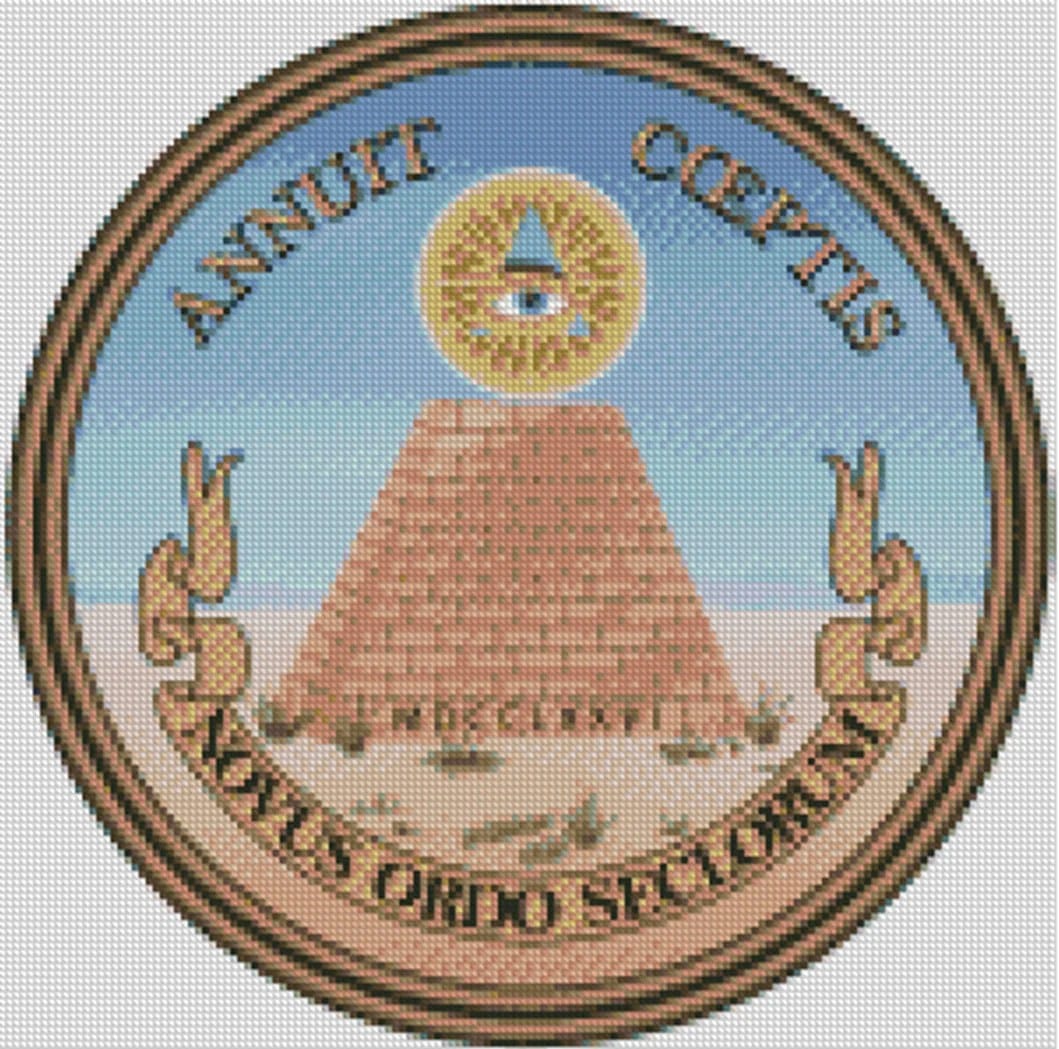Unveiling the Hidden Message: “Annuit Coeptis” and the Founding of America
Have you ever noticed the intriguing phrase “Annuit Coeptis” on the back of a dollar bill and wondered about its meaning? This Latin phrase, often translated as “He favors our undertakings,” provides a glimpse into the beliefs of America’s Founding Fathers and their hopes for the nation’s future. Join us as we decode the symbolism of “Annuit Coeptis” and its enduring presence in American culture.
Where Did “Annuit Coeptis” Originate?
The phrase “Annuit Coeptis” can be traced back to the Roman poet Virgil. While the exact phrase doesn’t appear in his works, the sentiment echoes Virgil’s lines celebrating divine favor upon heroic endeavors, particularly in his epic poem, the Aeneid. In Roman culture, seeking the blessings of the gods was paramount before embarking on significant undertakings, from wars to agricultural pursuits. “Annuit Coeptis” encapsulates this cultural belief.
In 1782, Charles Thomson, a Founding Father and the Continental Congress’ secretary, played a pivotal role in designing the Great Seal of the United States. A former Latin teacher, Thomson drew inspiration from classical sources and wove them into the fabric of this new nation. He proposed “Annuit Coeptis” for the reverse side of the seal, replacing the initial motto, “Deo Favente” (meaning “with God’s favor”). This shift suggests a move from a general statement of divine favor to a specific acknowledgment of God’s blessing on the nascent United States.
Decoding the Symbolism
“Annuit Coeptis” doesn’t stand alone on the Great Seal. It is strategically placed above the Eye of Providence, that enigmatic eye atop an unfinished pyramid. This design, rich with symbolism, has sparked endless debate and interpretation over the years.
- The Eye of Providence: This symbol, often associated with God’s watchful eye overseeing humanity, predates the Founding Fathers, appearing in Renaissance art and having connections to Egyptian mythology. Its inclusion on the Great Seal connects the success of the newly formed United States with divine favor and guidance.
- The Unfinished Pyramid: This symbol, consisting of 13 layers to represent the original 13 colonies, embodies the idea that America was a work in progress. The unfinished state of the pyramid represents the potential for future growth and improvement.
- “Annuit Coeptis”: Positioned above these potent symbols, “Annuit Coeptis” implies divine observation and approval of the nation’s founding and future growth. It’s as if the Founding Fathers were saying, “We see this grand endeavor, and we favor it.”
The Ongoing Debate: From Divine Providence to Secular Interpretations
The literal translation of “Annuit Coeptis,” “[He] favors (or “has favored”) our undertakings,” points to a past blessing, acknowledging a divine hand in the success of the American Revolution. Some interpret the phrase as implying continuous divine favor and guidance over the nation’s ongoing experiment in self-government. Others suggest a less overtly religious interpretation, arguing that “He” could refer to a more general sense of fate or destiny, reflecting Enlightenment ideals.
This ongoing debate is further fueled by the work of scholars like Richard S. Patterson and Richardson Dougall, who have traced the origins of both “Annuit Coeptis” and “Novus Ordo Seclorum” to classical sources.
Adding to the complexity, the phrase, alongside the Eye of Providence, has become a focal point for discussions on the role of religion in government and has even been linked with conspiracy theories, particularly those surrounding the Freemasons.
“Annuit Coeptis” Today: A Legacy of Interpretation
Despite its ambiguity, “Annuit Coeptis” remains a powerful symbol of American identity, embodying themes of divine providence, national purpose, and exceptionalism. The phrase continues to appear on official documents, currency (the US dollar bill), and in popular culture, signifying its enduring relevance.
If you’d like to delve deeper into the intriguing world of language and symbolism, you can explore the meaning of “annuit” and its connection to the Great Seal. For those interested in the accurate pronunciation of Latin phrases, our guide to “deus ex machina pronunciation” offers a fascinating exploration.
Key Points:
- “Annuit Coeptis” can be translated as “He favors (or ‘has favored’) [our] undertakings.”
- The phrase is inscribed above the Eye of Providence on the reverse side of the Great Seal of the United States.
- Adopted in 1782, the motto signifies the belief that the newly formed nation was under divine protection and guidance.
- It reflects the founders’ hope for a successful and enduring nation.
- “Annuit Coeptis” may be inspired by the Aeneid, that classic epic poem by Virgil.
- Over time, the motto has sparked various interpretations, including divine favor, ambition, and self-reliance – it’s a phrase with layers of meaning.
- Today, it continues to be a subject of lively debate and cultural exploration in the United States.













1 thought on “Annuit Coeptis Meaning: Deciphering the Symbolism of America’s Divine Favor”
Comments are closed.